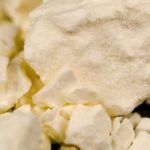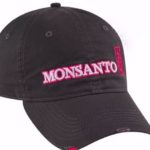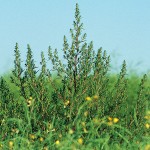Reuters — Monsanto, the world’s largest seed company, is also known for the popularity of its Roundup herbicide, beloved by farmers and homeowners alike for its speed and deadly assault on tough weeds. But Monsanto’s ongoing efforts to try to take over Swiss ag chem firm Syngenta, a rival whose product portfolio offers an array […] Read more
Monsanto’s move on Syngenta could mean move away from glyphosate

Colombia calls off aerial coca spraying
Bogota | Reuters –– Colombia will suspend aerial fumigation of illegal coca plants in light of a number of studies linking the herbicide involved to cancer, a move that marks the end of a decades-long strategy in the country’s fight against drug trafficking. Spraying coca leaves, which are used to make cocaine, has been a […] Read more

As it woos Syngenta, Monsanto mounts campaign to combat critics
Reuters — As seed and chemical maker Monsanto woos Swiss ag chem firm Syngenta, Monsanto also is trying to win over consumers in key international markets, rolling out social media and marketing campaigns. U.S.-based Monsanto said it has recently launched interactive consumer-oriented websites in China, France, India, Argentina and Brazil, in addition to a lead […] Read more

Watch for herbicide-resistant weeds
There are 21 resistant weeds on the Prairies and 38 million acres have at least one of them
Reading Time: < 1 minute The first few weeks of the growing season is a great time to police fields for suspicious weeds. Look for weeds that survived pre-seed burn-off or post-emergent sprays while others of the same species have died. These few weeds could be resistant, and it would be good to nab them early. “It takes 14 to […] Read more

Monsanto’s Syngenta gambit seen hinging on sale of seed businesses
London/Frankfurt | Reuters –– U.S. seeds giant Monsanto is trying to line up buyers for assets worth up to US$8 billion to appease competition authorities before making a fresh takeover approach for Swiss rival Syngenta, possibly within three weeks, industry sources said. Monsanto is expected to tap German chemicals group BASF, an existing joint venture […] Read more
WHO findings on glyphosate won’t speed up EU safety review
Brussels | Reuters –– EU regulators will not accelerate a decision on whether to restrict use of the world’s most widely used herbicide, even though it has been linked to cancer by the World Health Organization (WHO), officials said on Tuesday. The International Agency for Research on Cancer (IARC), part of the WHO, said in […] Read more

Forage stands can be terminated in spring — if done right
Herbicide timing is key, and soil moisture and fertility must also be evaluated
Reading Time: 2 minutes Traditionally, forage stands are terminated in the fall so a good seedbed can be established and the sod root system has some time to decompose. However, hay stands can also be terminated in the spring. Producers just need to be aware of a number of factors that can impact success. “Spring termination of hay land […] Read more

U.S. regulators may recommend testing food for glyphosate residues
Reuters — U.S. regulators may start testing food products for residues of the world’s most widely used herbicide, the Environmental Protection Agency told Reuters on Friday, as public concern rises over possible links to disease. Glyphosate, the active ingredient in Roundup herbicide, has come under intense scrutiny since a research unit of the World Health […] Read more

PMRA review calls for slim changes to glyphosate label
A federal re-evaluation of glyphosate’s health risks leaves the popular herbicide’s status unchanged in Canada — but proposes tweaks to the product label as a “risk-reduction” measure. Products containing glyphosate “do not present unacceptable risks to human health or the environment when used according to the proposed label directions,” Health Canada’s Pest Management Regulatory Agency […] Read more

Chinese citizens sue government over transparency on Roundup
Beijing | Reuters –– Three Chinese citizens are taking China’s Ministry of Agriculture to court in a bid to make public a toxicology report supporting the approval of Monsanto’s popular herbicide, Roundup, 27 years ago. The case, a rare example of a lawsuit by private citizens against the Chinese government, comes amid renewed attention on […] Read more

